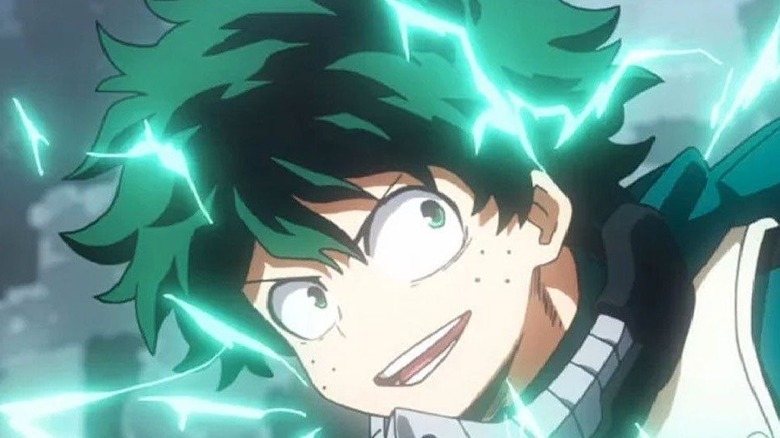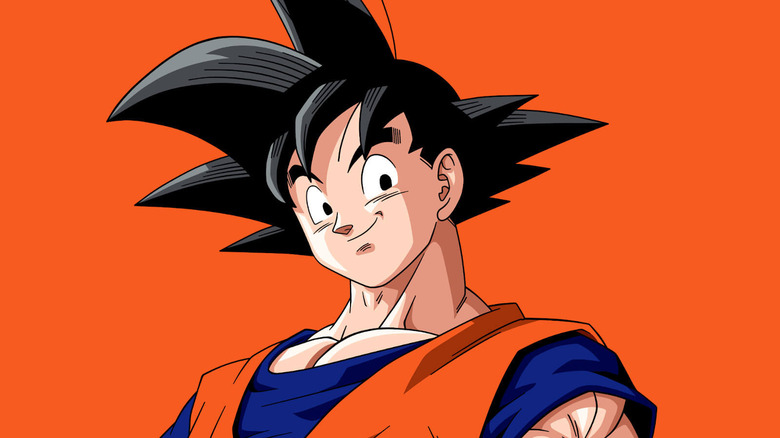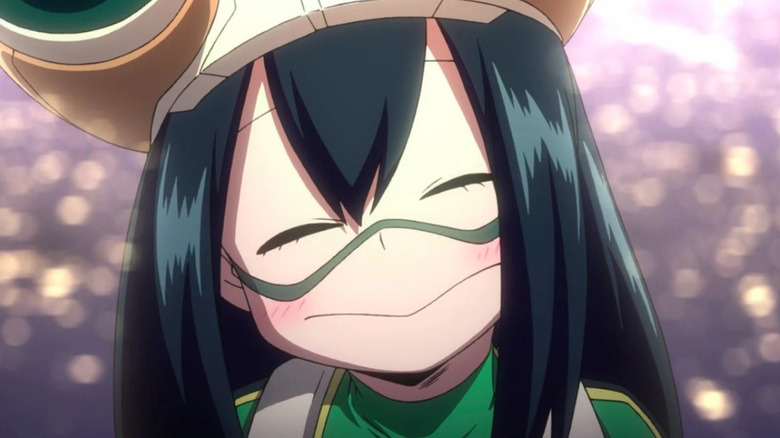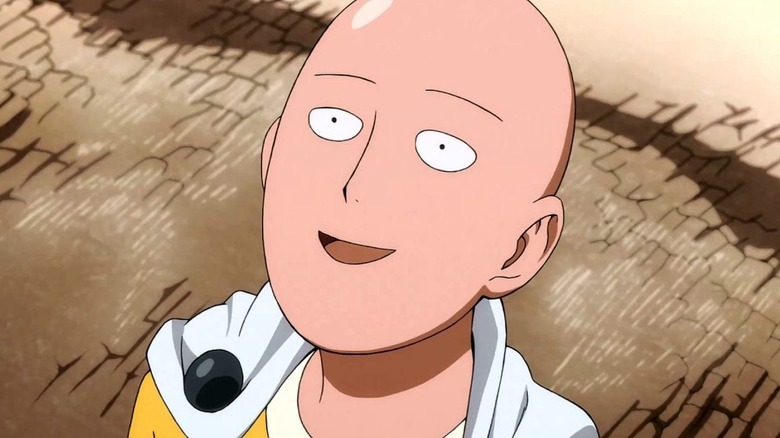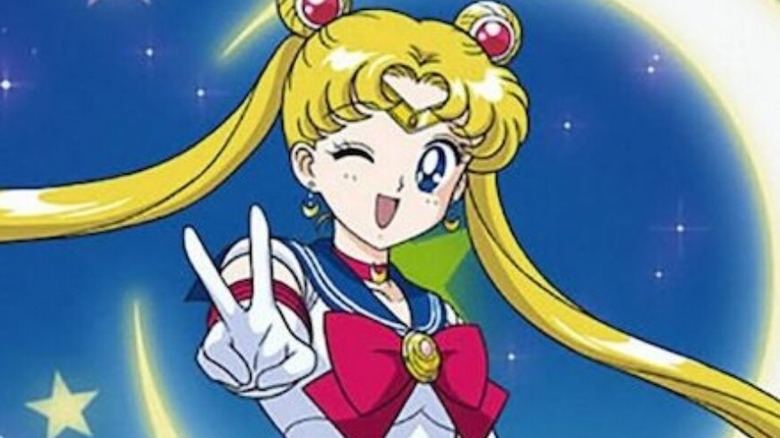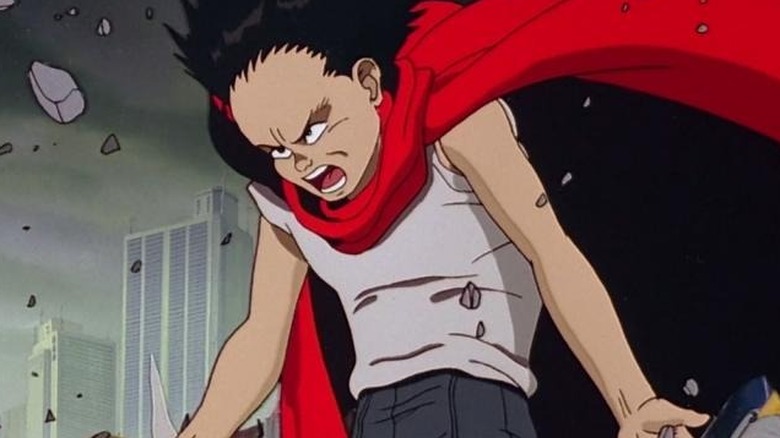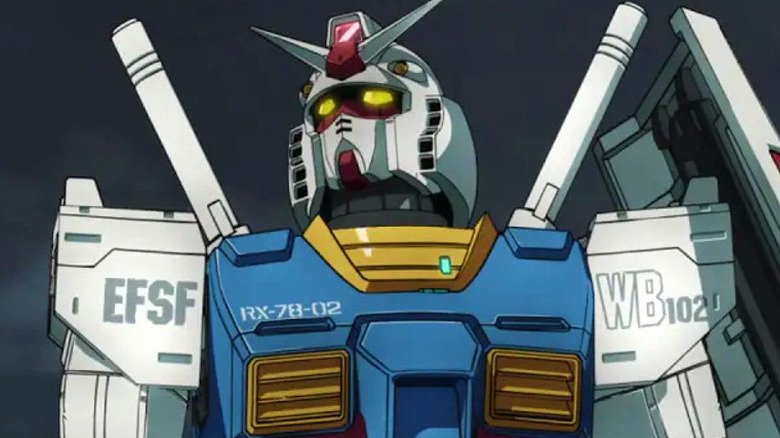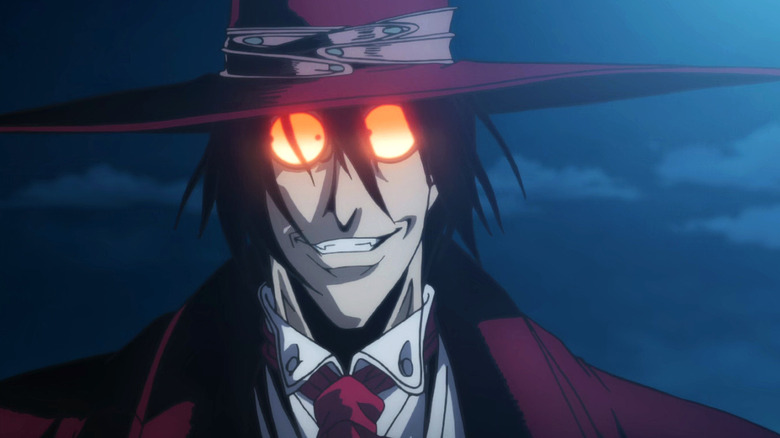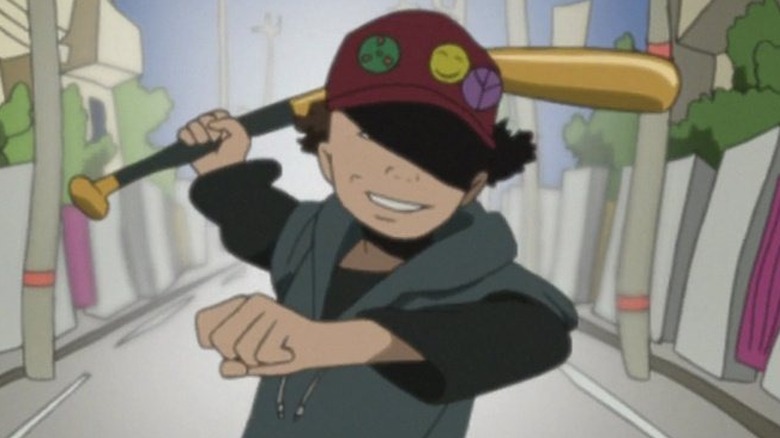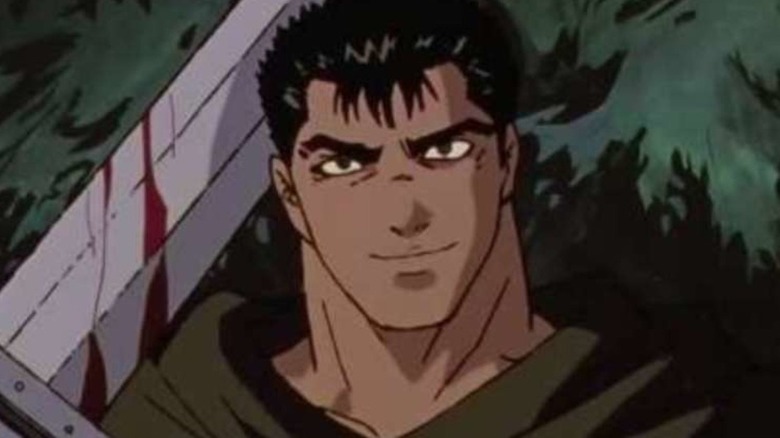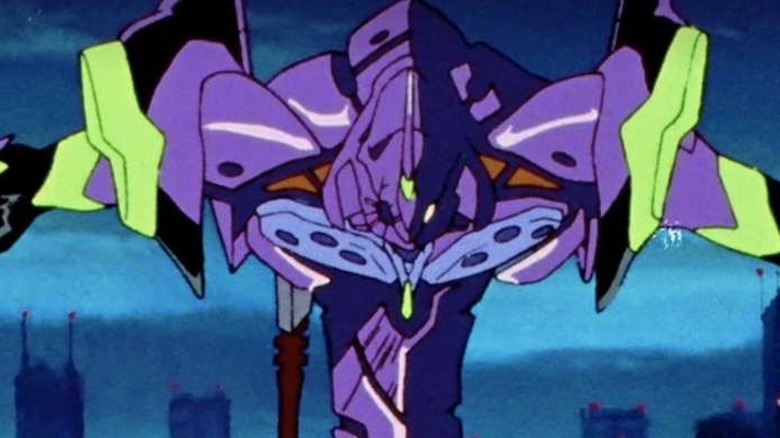Anime Shows That Could Use The Live-Action Treatment
Anime, which originated in Japan, has been a staple of American popular culture for decades now. Japanese imports like "Speed Racer," "Voltron," and "Robotech" were popular in the 1970s and 1980s, despite being heavily re-edited and re-dubbed. In the 1990s, Toonami on Cartoon Network introduced American audiences to "Dragon Ball Z," "Sailor Moon," and more. Once a niche category, anime has become ubiquitous and mainstream.
With anime's immense popularity in the U.S., there inevitably have been many Western adaptations, especially live-action ones. Unfortunately, Hollywood has had very few successes at live-action anime adaptations (such as the Wachowski sisters' vastly underrated "Speed Racer" film from 2008), with most being disappointing at best and a few being outright abysmal.
However, streaming services like Netflix have decided to try and turn anime properties into live-action shows instead of films. This includes the critically reviled "Cowboy Bebop" starring John Cho that came out last year, as well as their upcoming "One Piece" and "Avatar: The Last Airbender" adaptations. Even J.J Abrams is developing a "Speed Racer" show for Apple TV+.
Let's see which other anime series would most benefit from the live-action TV treatment (or, at the very least, would be the least damaged by the transition).
Dragon Ball Z
We've talked before about how the popular sci-fi/action anime "Dragon Ball Z" would make a great live-action movie, but it honestly would probably work better as a live-action series. This is because of its sprawling—and surprisingly deep—story, as well as its diverse and large cast of characters. A feature film would need to condense, simplify, and ultimately shortchange these aspects of the original in order to fit into a tight runtime (as we saw with the dreadful "Dragon Ball Evolution" from 2005).
Furthermore, a big part of the story is how the protagonist Goku's rivals and enemies get redeemed into allies throughout the show. This includes a reincarnation of one of Goku's greatest foes from the original "Dragon Ball," Piccolo, essentially becoming a surrogate father to his son, as well as the genocidal Vegeta becoming one of Earth's greatest defenders. Considering how evil these characters are at the beginning, you need time to flesh them out and for them to earn their redemption. A series would allow for this. On the other hand, a feature film would either rush through character arcs or keep kicking the can down the road for potential sequels.
Finally, VFX has gotten to the point that it's cheap enough to do well on television shows, which often rival (or even exceed) feature films nowadays anyway. Audiences could have their cake and eat it, too: epic super-powered fight scenes and time to develop the characters and lore. Win-win!
My Hero Academia
"My Hero Academia" is a manga and anime set in a world where 80% of the population has superpowers (here called "Quirks"). However, despite that, very few people choose to become superheroes, instead deciding to work menial jobs for some reason. The greatest superhero in the world is the Superman-esque All-Might. The story focuses on Izuku Midoriya, a rare Quirk-less teen who nonetheless wants to be a superhero. He gets his chance when he serendipitously gains All-Might's powers. He then joins the prestigious superhero training school U.A. alongside other super-powered teens – like Froppy, who has the power of "frog," and his rival Bakugo, who has the power of "explosion."
While there's a live-action film adaptation already in the works, "My Hero Academia"—like "Dragon Ball Z"—would work best as a show. This is because it has a wide roster of cool, fun characters and awesome events that a feature film would need to strip down, delete, or change in a way that would make them potentially unrecognizable.
Live-action superhero TV shows aimed at teens—like "Smallville," "Titans," and the upcoming "Ms. Marvel"—have been pretty successful (with a few duds here and there), which suggests there's an audience for "My Hero Academia." Furthermore, the unique characters and world of "My Hero Academia" would help it stand out "plus ultra."
One Punch Man
"One Punch Man" is a direct parody of shonen anime, an action genre that primarily targets pre-teen to teen boys, such as the aforementioned "Dragon Ball Z" and "My Hero Academia." It's about a superhero named Saitama who has the ability to kill any enemy (including towering kaiju and ancient space gods) in literally one punch, hence the name of the show. It routinely parodies the entitled power fantasies that these kinds of stories engender, as well as the inherent futility at the center of them. Saitama is actually depressed because he can't have a good fight due to his powerful punches.
However, what would make "One Punch Man" interesting as a live-action show is how it satirizes the bureaucracy at the heart of this superhero world. In fact, one of the great running gags is how Saitama—despite his amazing power—is registered as a C-list hero due to random, farcical circumstances that make him look less capable than he is.
We've seen this work in live-action in both iterations of "The Tick," as well as elements of this kind of superhero in Amazon's "The Boys." The live-action version of "One Punch Man" would still need superhero battle scenes to justify its existence, but the fact that those fights can be cut comically short translates into reduced VFX costs and more time to spoof the more mundane aspects of the hero world. This could make the show very appealing to networks. There seems to be a movie adaptation in the works, but we think this comedy would better fit an episodic format.
Sailor Moon
"Sailor Moon" was an anime series based on a manga of the same name that ran from 1992 to 1997. It was about a group of super-powered teen girls called Sailor Scouts who fought off monsters, aliens, and all manner of other evildoers. Each of the Sailors was named after a specific planet (and a moon), such as Sailor Mercury, Sailor Mars, Sailor Jupiter, and, of course, the eponymous Sailor Moon.
While ostensibly an anime series aimed at young girls, "Sailor Moon" was nonetheless a fantastic and fun show, so that it could honestly be enjoyed by everyone, no matter their age or gender. The fights were cool, the characters were funny and relatable, and every episode taught valuable lessons about friendship.
To be clear, there was a live-action Japanese series called "Pretty Guardian Sailor Moon" that aired from 2002 to 2004, as well as an attempt at an Americanized live-action/animated hybrid in the early '90s. However, with modern visual effects, as well as a depressing dearth of female-oriented action shows (despite a few efforts from Marvel and Disney), there is an opportunity to bring "Sailor Moon" back to a new audience. A reboot could also allow for more diverse casting. Being live-action would help showcase some interesting—and much needed—colorful, sparkly visuals that aren't seen in most action/superhero shows, even ones ostensibly aimed at a younger demographic.
Just look at what Netflix did to "Winx," of all things.
Akira
As with many entries on this list, there's been a long history of attempting to adapt the "Akira" manga and anime into a live-action feature film. The list of potential projects includes one directed by "Batman Return's" Tim Burton, "Jungle Cruise's" Jaume Collet-Serra, and most recently "JoJo Rabbit's" Taika Waititi (which seems to have also been canceled at this point).
One of the main issues with getting a live-action feature film off the ground is the manga's sprawling story. This is something even the famous 1988 anime adaptation of "Akira" struggled with: condensing the story considerably to fit into the film's roughly two-hour runtime. Making the live-action "Akira" a show instead of a film would give it more time to breathe, and thus allow it to bring more of the manga's story to life.
Furthermore, some of the images from the manga and anime are undeniably iconic, and with visual effects progressing to the point they have now, there's no reason—with the right studio and talent in front of and behind the camera—that it couldn't be realized in live-action. We've even seen how cool Kaneda's iconic red bike looked in live-action in "Ready Player One" (despite the movie around it being pretty awful), so all that's needed is to make sure everything else is up to snuff as well.
Mobile Suit Gundam
At first glance, "Mobile Suit Gundam," which premiered in Japan in 1979, seems to be just another mecha (or "big robot") anime, albeit a pioneer of the subgenre. However, "Mobile Suit Gundam"—which kickstarted the expansive "Gundam" universe, consisting of multiple series, movies, video games, etc.—remains the best of its kind.
Even though there's a lot of exciting robot-on-robot violence on the show, the story is grounded in compelling political intrigue playing out between nuanced characters. In the original "Mobile Suit Gundam" anime, for instance, there is no real clear good guy or bad guy among the competing factions, even though the show mostly focused on one side at first. Like in a real-life war, the line between good and bad is blurred by the brutal moral compromises made during the heat of battle, as well as the usually complicated circumstances that led to the fighting in the first place.
A "Gundam" series would work in live-action since robots and spaceships are generally easier to do in VFX than organic creatures (and less expensive). You'd also have a good backdrop of political intrigue and complex character dynamics to keep audiences—and talented actors—invested in the show, even when costly action scenes aren't happening on screen.
Also, come on, there's a giant mech with a glowing sword blowing stuff up in space. That's just awesome.
Hellsing
Vampires are cool. OK, OK, maybe not all vampires. Still, vampires are generally known for being suave. "Hellsing" is no exception. The name refers to the original vampire hunter Abraham Van Helsing, who created the super-secret "Hellsing Organization" (that's why the title has two "L's") over a century ago to save the world from encroaching supernatural threats (such as, of course, the aforementioned vampires). The action-packed anime series focuses on the convolutedly named female hunter Sir Integra Fairbrook Wingates Hellsing, who now helms the Hellsing Organization. She's protected by her faithful warrior-butler Walter C. Dornez and the morally ambiguous but super-stylish vampire Alucard.
Making a live-action adaptation of the anime "Hellsing" is honestly just an excuse to get some slick, inventive vampire action on screen, which has been sorely lacking since the end of the "Underworld" and original "Blade" films.
Besides the anime's awesome action, the look of the characters is also unique and the lore is fun. Furthermore, unlike other anime, it wouldn't rely so much on flashy CGI and VFX and could be done relatively cheaply with prosthetics and practical stunts. The strong female lead would be a great part for an actress to chew on as well. A live-action movie is reportedly in development, but we could see this as a show, too. The more the merrier.
Paranoia Agent
Satoshi Kon is one of the greatest anime directors in the modern era. He is responsible for many anime classics, such as the psychological thriller "Perfect Blue" (which was arguably the basis for Darren Aronofsky's "Black Swan") and the wildly imaginative "Paprika" (which also arguably inspired Christopher Nolan's "Inception"). Kon's visual style is memorable and awe-inspiring.
This brings us to his anime show, "Paranoia Agent." "Paranoia Agent" is a mind-bending anthology series, similar to "The Twilight Zone" or "The Outer Limits," about different people encountering a mysterious red-capped boy nicknamed Lil' Slugger who hits them with a golden bat. This act changes their lives in drastic—and often unpredictable—ways.
There is a recurring protagonist who tries to investigate Lil' Slugger's attacks, but the show is much more focused on how the attack changes the victims' lives. The show goes into interesting psychological places exploring how different people respond to the assaults, with some even surprisingly benefiting from it.
As with Kon's other works, "Paranoia Agent" is visually distinct and emotionally evocative. It wouldn't take much to translate it to live-action. It's already arguably been done successfully before for the silver screen, as mentioned above. Also, more people need to watch "Paranoia Agent." If a live-action adaptation—even a lesser one—gets people to seek out the original, it might be worth it for that alone.
Berserk
The excitement around the upcoming "Game of Thrones" spin-off "House of the Dragon" and the success of Netflix's "The Witcher" series—among others—show that audiences are still excited about grim-and-gritty medieval fantasy stories. The manga "Berserk" by Kentaro Miura and its subsequent anime adaptations are probably some of the grimmest and grittiest fantasy stories ever told.
"Berserk" mainly follows the strong and stoic warrior Guts as he travels the wastelands of a fantastical world, brutally fighting off mercenaries, giants, and demons. He eventually gets caught up in a mystical plot for revenge that could consume his soul.
There is obviously much more to this story than that. While some of "Berserk" hasn't aged well (especially how it treats many of its female characters), it is still ultimately a powerful and emotional story about sacrifice and redemption.
These kinds of fantasy shows have been very popular since "Game of Thrones" hit HBO almost a decade ago. "Berserk" would fit right into that trend. Furthermore, its unique world and creature designs, as well as Guts' powerful redemption arc, would put it a cut above a lot of them. Also, "Berserk" would have relatively little need for expensive VFX, despite its obvious fantastical trappings.
Neon Genesis Evangelion
While the "Gundam" series is the original (and still arguably the best) mecha anime franchise out there, "Neon Genesis Evangelion" definitely gives it a run for its money. Not only does "Neon Genesis Evangelion" have great and exciting mech action sequences—some of the most exciting in the genre, in fact—but the characters and plot are also intriguing.
"Neon Genesis Evangelion" possibly surpasses "Gundam" and other mecha anime in the way it talks directly about depression and the psychological effects of post-traumatic stress disorder. The anime is still ostensibly an action show, but it challenges its viewers and complicates tropes the mecha anime genre usually takes for granted: child soldiers, constant warfare, mass destruction, civilian casualties, etc. It asks the audience to take the psychological effects this would actually have on these characters seriously. That's not to mention the show's symbolic religious imagery. The heroes fight monsters called "angels" that blast energy attacks in the shape of crucifixes.
A live-action show could similarly focus on the characters and their mental and emotional issues. Being character- rather than action-driven would also cut down costs, but we'll still want to see mech vs. angel action rendered in cutting-edge CGI.
